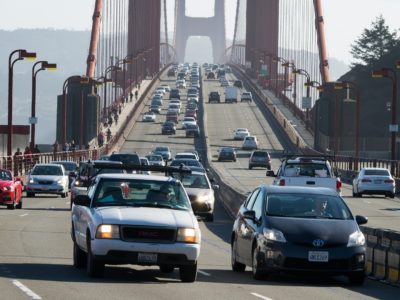Businesses Without Standing
Standing is notoriously a barrier to litigation by environmental groups. In fact, many of the Supreme Court’s major standing decisions involve environmental claimants. The conventional wisdom is that standing is no problem for businesses because regulations limit their freedom of action and impose financial costs. But recent cases suggest that’s an oversimplification. In fact, it may not be that unusual for business groups to run into standing problems.
The most striking recent example was the D.C. Circuit’s rejection of business challenges to EPA’s greenhouse gas rules. One of the stronger legal claims attacked EPA’s tailoring rule, which exempts smaller sources. But the D.C. Circuit held that businesses lacked standing to challenge that rule, because it lowered their burdens rather than raising them.
That isn’t the only recent example, however. In another case relating to climate change, the D.C. Circuit ruled that the state of Texas lacked standing to protest that the federal EPA had taken over certain permitting activities. In a recent Fifth Circuit case, Cibolo Waste, Inc. v. City of San Antonio, the court threw out an attack on a city’s permit fee for waste collection, because local waste haulers lacked standing to complain about the fee’s effect on interstate commerce. And just last week, in Doe Run Res. Corp. v. EPA, the D.C. Circuit held that a lead smelter lacked standing to attack new lead regulations applying to other lead processes.
Here are a couple of other examples within the last couple of years. In Nat’l Ass’n of Home Builders v. EPA, the D.C. Circuit rejected an industry challenge to the way EPA classifies water bodies for regulatory purposes. The D.C. Circuit also rejected an industry attack on EPA’s approval of E15, a blend of gasoline and 15% ethanol, for use in select motor vehicles and engines in Grocery Manufacturers Association v. EPA.
In fact, an empirical study published in 2011 actually showed that business advocates ran into more standing problems than environmentalists:
Over the entire period we study, claims brought by regulated industries were dismissed due to lack of standing approximately 4.6% of the time, while just 3.1% of claims brought by advocacy groups were dismissed. In other words, regulated industries were about 50% more likely to be denied standing than the beneficiaries of regulations.
The study used a data base of almost two thousand cases, including every appellate decision where a litigant sued either the federal government or used a citizen suit provision to sue private parties under nine major environmental statutes between 1976 and 2009. The authors point out that businesses are more likely to run afoul of the “zone of interests” part of the standing test.
These findings (and the recent cases) are contrary to the conventional wisdom on the subject. Standing doctrine may not be as one-sided in its effects as many of us have assumed.
Reader Comments
One Reply to “Businesses Without Standing”
Comments are closed.







You’re absolutely right that standing is a two-edged sword, even if one believes (as I do) that the D.C. Circuit has gotten some of these cases wrong. A good example of a recent case in which the D.C. Circuit appears to have stretched to deny an industry group standing is Grocery Mfrs Assn v. EPA, which challenged the EPA’s decision to expand the use of E15 (minimum 15 percent ethanol content) fuel. The EPA’s decision clearly violated the relevant statutory provisions, will be environmentally harmful, and will have a significant effect on many industries — and yet the D.C. Circuit held there was no standing. Judge Kavanaugh wrote a powerful dissent, but the Supreme Court denied cert. I blogged on the case here:
http://www.volokh.com/2013/06/20/standing-against-e15/
FWIW, I also think the D.C. Circuit got standing wrong in the challenge to the tailoring rule, but I also think this may be (in part) due to a failure by the industry advocates to make the necessary claims. As often happens with frequent litigants (and their attorneys) there is a resistance to adapt one’s arguments to take advantage of wrinkles in the doctrine, and sometimes that has consequences.
I blogged about this decision here:
http://www.volokh.com/2012/08/28/en-banc-petitions-in-d-c-circuit-greenhouse-gas-litigation/
JHA